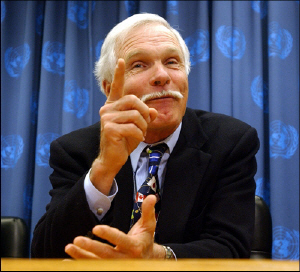Article courtesy of Camilo Reyes
01 July 2008
Collections and Credit Risk
(c) 2008 Collections and Credit Risk and SourceMedia, Inc.
All rights reserved.
As the year hits its midpoint, collection agency executives are warily looking ahead. They see a growing number of bad debt placements, but with a corresponding fall in liquidation rates. The failing economy and a housing mess, along with high gas and food prices, are putting a definite crimp in debtors' ability to repay their bills.
Amid the flood of bad debt placements, agencies are staffing up and working to leverage new technology to improve efficiencies. At the same time, lenders and financial institutions are lowering contingency rates and putting the squeeze on margins.
Unfortunately, most industry observers think it will be another year before liquidation rates really improve. So, for now, agencies are tweaking their tactics - negotiating repayment schedules, coaxing rather than pressuring, and so on.
"It's the same story across the board," says Patrick Carroll, president and CEO at Nationwide Credit, based in Kennesaw, Ga. "The economy has changed and liquidation rates are down everywhere. It's nowhere near as robust as it was."
Of course, the credit crunch that first hit last August started the spiral. Nine months later, with the economy weakened, over-leveraged consumers - burdened by too much credit card and mortgage debt - cannot repay their creditors. Consider:
* Credit card charge-offs continue to rise, according to a May report by Standard & Poor's. The overall charge-off rate of 5.7% in March 2008 was 120 basis points higher then the overall 2007 average of 4.5%.
* Delinquency rates are trending higher too, the report continues. March's 30-plus-day delinquency rate of 4.5% was 60 basis points higher than the overall 2007 average of 3.9%.
* Consumer bankruptcy filings increased about 48% nationwide in April from the same period a year ago, according to the American Bankruptcy Institute. The group expects consumer bankruptcies to top 1 million new cases this year.
* Foreclosures in the first quarter of 2008 increased 23% from the previous quarter, and 112% from the first quarter of 2007, according to RealtyTrac. It says one in every 194 U.S. households received a foreclosure notice during the first quarter.
* The unemployment rate, though still historically low, hit 5.1% in March, the highest mark since September 2005. In late May, the Federal Reserve raised its unemployment forecast to between 5.5% and 5.7%, up from an earlier estimate of 5.2% to 5.5%.
The failing economy has boosted debt placements at agencies by 10% to 30% over last year, says Michael Flock, managing director at Flock Advisors, a consulting firm in Atlanta. He says liquidation rates are down 5% to 10%. At Nationwide Credit, debt placements were up 23% in the first quarter of 2008, compared to the last quarter of 2007, says Carroll. At publicly traded NCO Group, a report filed May 5 with the SEC noted a "weaker collection environment during 2008." And, in a statement of its first-quarter results, NCO said the environment for third-party collections was weaker than expected.
Agency executives agree that placements are up and liquidation rates are down. Placements are up about 20%, says Arnie Harris, president and CEO at collection agency and law firm Harris & Harris, a 300-plus seat Chicago-based firm with call centers in Chicago and Milwaukee. A lender client provides Harris with scorecards that compare the performance of several agencies, including his own. He notes that of the three agencies on the scorecard, recoveries are down by an average of 20% compared to this time last year. "Two things are hitting consumers hard," notes Harris. "High gas prices and food prices. They can't afford to pay (their bills)."
Another big factor limiting repayment is the mortgage meltdown, agency executives say. Until last year, consumers could tap the equity in their homes to get loans to pay off debts, especially credit card bills. "That tool is gone," says Carroll at Nationwide Credit.
At Niagra Credit Solutions, based in Williamsville, N.Y., liquidation rates are off only slightly, says Danny Czyrny, executive vice president. The company collects tertiary debt. "Our debtors had problems two years ago," says Czyrny. But he believes liquidation rates are probably down 10% to 15% at agencies that handle fresh charge-offs.
Recoveries are not down across the board, however, agency executives say. "We are not seeing reduction in collectability," says Chris Wunder, president at Baltimore-based ROI Companies, which handles only health care claims. He attributes steady recovery rates in the health care segment to a relatively steady unemployment rate. Low-balance utilities and telecom debt were mentioned by agency executives as particularly difficult to collect.
The legal collections environment also is getting tougher, says Alan Weinberg, managing partner at Weltman, Weinberg & Reis, based in Cleveland. Court cases involving past due debts are being continued, or delayed, more frequently. Bankruptcy judges are more often requesting backup paperwork, such as the original loan applications. "Judges are banding together to help debtors," says Weinberg.
Some attorneys are rejecting work outright from some debt buyers thanks to a lack of documentation and low collectability rates, sources say.
"The cost of collections is high, so "[collectors] can't afford to throw resources on everything that comes in the door," says Robert G. Markoff, partner at Chicago-based Baker, Miller, Markoff & Krasny, and current president at the National Association of Retail Collection Attorneys.
An increase in placements has led agencies to staff up in an effort to handle all the business while refining collection techniques. "We have had to add more people because of the volume of business," says Carroll at Nationwide Credit. The company has about 1,300 employees and staffing has increased by about 35%, split about evenly between offices in the United States and the company's facilities in India.
Experienced collectors are somewhat scarce. "If I could find 40 people who can deal with insurance companies and patients, I can put them to work," says ROI's Wunder, 2008 president of trade group ACA International.
But a softening labor market could help fill demand for collection workers. At Baker, Miller, Markoff & Krasny, new staffers are being drawn from the mortgage industry, which has suffered big layoffs. "We find we can get a better quality staff member who knows something about collections and finance at a lower price," says Markoff.
New York City-based iQor has a new facility in the Philippines that should soon be fully staffed with 2,000 collectors. The company also is adding employees in the United States, says iQor spokesperson Chris Dorval, though he does not attribute the hike to rising placements but rather to the continued growth of the company.
At the same time, Dorval notes that big balance accounts are being kept in the United States because collectors here relate well to American consumers.
While expenses are increasing, lenders and debt purchasers are squeezing contingency rates, according to agency owners. Consolidation in the telecom and banking industries has provided companies in those sectors with some leverage in negotiating favorable collection contracts.
"Fewer customers with more volume means they dictate the prices," says Flock at Flock Advisors. Several other sources say contingency rates on fresh charge-offs are at about 20% to 25%.
Consumer repayment behavior is changing - a fact that will impact how collectors fare in the months ahead. In the past, consumers would pay their mortgages first, then secured loans and finally unsecured loans. Credit card bills were the last loans repaid in the traditional payment hierarchy, says Edmund Tribue, senior vice president and global practice leader at MasterCard Advisors in Purchase, N.Y. "We see a different behavior now."
Among certain populations, credit cards are being used to buy groceries and to pay utility bills. That means timely credit card repayments are more important than being current on a mortgage. Consumers have learned that foreclosure proceedings do not begin until after three payments are missed. Even after a foreclosure, the resident has six months to vacate the property.
"This is why we see a lag in rising delinquency rates considering that credit cards have record growth," says Tribue.
As a result, collection agencies are changing their strategies, determined to collect what they can. Shrewd collectors are pushing to have payment relationships with debtors to resolve accounts. "The probability of collecting the balance in full is less," says Carroll. "Smart collectors will get a down payment and enter into a payment schedule."
Looking ahead, it is hard to predict when the economy might improve. The persistent rise of gas prices does not bode well for a short downturn, economists say.
Many industry observers think more consolidation will follow as smaller agencies feel profit pressures. Agencies that service a niche might fare well, though companies that rely on contingency work from banks could see their margins squeezed even further.
In previous downturns, lenders typically tighten their credit policies which eventually results in fewer bad debts and fewer placements. Then as the economy recovers, liquidation rates gradually improve. Most industry observers think that process might take anywhere from six months to 18 months. Carroll at Nationwide Credit says today's placements will have a longer life cycle than at other times. He adds: "We're just not sure how long it will take this bubble to get through the system."






